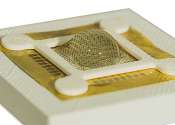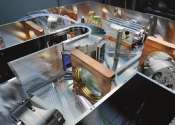Racers, mechanics, tinkerers converting classic cars to EVs
When Kevin Erickson fires up his 1972 Plymouth Satellite, a faint hum replaces what is normally the sound of pistons pumping, gas coursing through the carburetor and the low thrum of the exhaust.
Dec 20, 2022
0
29









